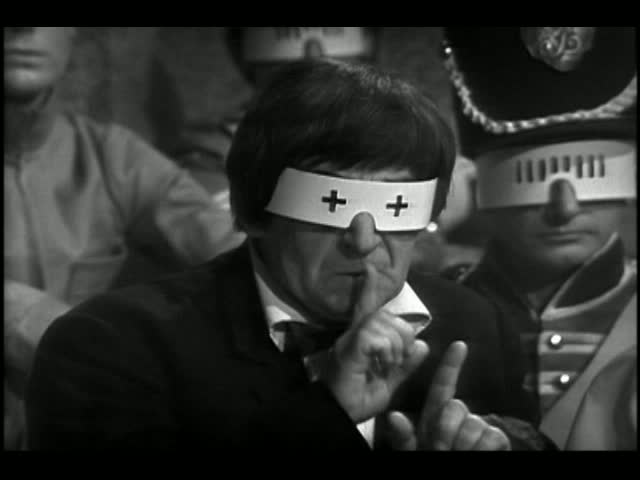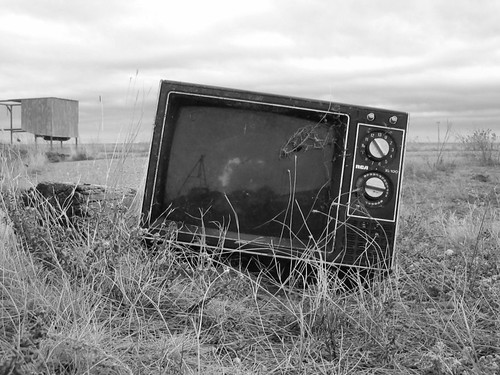-
Architecture
archive
art
Ballard
body
China
cinema
ecology
education
Europe
Ezra Pound
futurology
gothic
image
law
Literature
London
magic
memory
Modern
Modernism
museums
music
novel
performance
photography
poetry
politics
radical philosophy
science
science fiction
Sinclair
Situationism
sound art
Surrealism
technology
television
the avant-garde
The Future
Theory
thomson
time
Urban
visual culture
war
Posts tagged television
Dr Who’s The War Games, January 22 2014
Tagged as law, science fiction, television

Wednesday 22 January 2014, 2.30-4.30 pm (please note change of time)
Room 2.01, School of Law, Little Titchfield Street
“A turning point for Dr Who: the War Games Revisited”
The seminar will comprise an introduction from Danny Nicol, a screening of the pivotal episode 10 of Dr Who’s The War Games (1969) and will be followed by a discussion.
British Science Fiction Film and Television of the 1950s seminar
Tagged as cinema, science fiction, television

Wednesday 17th October, 4.00pm – 5.15pm
Room 106, 32-38 Wells Street, London W1T 3UW
Christopher Daley (University of Westminster)
‘Too many machines’: British Science Fiction Film and Television of the 1950s
In analysing British cinema between 1945 and 1965, Tony Shaw (2001) argues that the influence of American cinema on British audiences was undeniable: ‘Hollywood films dominated the British market from the beginning to the end of the period and not to recognize the potentially significant role American productions had in shaping British perceptions of the Cold War would be misleading’ (p.4). Movies such as The Day the Earth Stood Still (1951), Invasion of the Body Snatchers (1956) and Forbidden Planet (1956) persist as potent symbols of an era which mixed fear of communism and nuclear war with utopian hopes for the technological conquest of other worlds. Whilst the political content of these popular films has been continuously reviewed by critics and scholars alike, the contemporaneous works of British filmmakers has received limited attention. In this paper, I will analyse a series of British films and television programmes which not only challenged or complicated the political content of prominent American SF productions, but crucially, made use of the speculative imagination to reflect upon the state-of-the-nation during a period of rapid technological and social transformation.
China in Britain #1: Film workshop, May 10th
Tagged as China, cinema, television

China in Britain #1. Film
Thursday May 10th 2012, 10.00 am – 6.00 pm
UPDATE: An important message from the organisers: because of our support for UCU Strike Action on May 10th, the venue has been transferred from the University of Westminster to The Brunei Gallery, School of Oriental and African Studies, Thornhaugh St., Russell Square, London WC1H OXG: http://www.soas.ac.uk/gallery/
You are invited to the first in a series of colloquia organised as part of China in Britain: Myths and Realities, an AHRC-funded research network project to investigate changing conceptions of China and Chineseness in Britain, and based at Westminster. The colloquia will connect up the important yet disparate work being done by cultural historians, literary critics, curators, archivists, contemporary artists, film makers and Sino-British organisations. In bringing these specialists together, the project aims to provide a high profile platform for the discursive elaboration of the changing terms of engagement between British and Chinese people and to widen the terms of debate from diaspora studies and simplistic reductions around identity to an inter-disciplinary network of research practice relevant to contemporary debate.
Participants include: Ross Forman (University of Warwick); Felicia Chan (University of Manchester) and Andy Willis (University of Salford); Jo Ho (filmmaker). The day will end with Guo Xiaolu introducing a screening of her film She, A Chinese, followed by a Q and A.
The Chinese presence in British cinema dates from James Williamson’s 1900 ‘documentary’ film, Attack on a China Mission, a recreation of that year’s ‘Boxer rebellion’ in which nationalist militants attempted to expel Christian missionaries and other foreigners from China. It was actually filmed in Brighton and Williamson had never visited China. A ‘yellow-face’ tradition followed, most popularly the Fu Manchu movies stretching through to the 1970s craze for kung fu – not until the early 1980s did Asian-British filmmakers finally make some inroads into the British film industry. In 1986 the first truly Chinese-British feature, Ping Pong (1986), reached the screen. Directed by the British-born director Po-Chi Leong, who had directed several features in Hong Kong, the film was set in London’s Chinatown, with a largely unknown cast – except for David Yip, best known as TV’s The Chinese Detective (BBC, 1981-82). Though critically lauded, however, the film failed to find the success it deserved, and neither it nor Mike Newell’s Soursweet (1988) adapted from Timothy Mo’s novel and scripted by Ian McEwan, has so far heralded the arrival of a healthy British-Chinese cinema. While China, Taiwan and Hong Kong-based directors like Zhang Yimou, Ang Lee and Wong Kar-Wai achieved arthouse and now mainstream success in Britain, other British-Chinese features such as BBC Film Peggy Su! (dir. Frances-Anne Solomon, 1998), failed to receive a proper release, despite favourable reviews. More recently Guo Xiaolu’s award winning film, She, A Chinese (2009), a British film in terms of its financing and much of its location, also failed to achieve due recognition from the film trade press and distributors. However a new generation of British-born or British-based Chinese are at the vanguard of positive change, amongst them University of Westminster alumna, Jo Ho, who created the hit BBC television show, Spirit Warriors (the first British series to star a predominantly East Asian cast) and who is now working on several feature films, and award winning director, Belfast born Lab Ky Mo.
RSVP – Places are free but strictly limited so it is essential to register with the project’s Principal Investigator, Anne Witchard, at: anne@translatingchina.info
WEBSITE: http://www.translatingchina.info

Wednesday 8th February, 1.15pm – 2.30pm
Room 359, University of Westminster, 309 Regent Street
Morgan Daniels (Queen Mary, University of London)
‘Satire and Childishness’
This paper examines the effects of broadcast satire in Britain c.1939-73, and a curious yet clear theme to be found in correspondence to the BBC, namely the condemnation of satire, comedy and other irreverent programming as childish, juvenile, and so on. What I want to ask is Why? Why is it that, as the psychologist James Hillman observed, ‘[t]he worst insult is to be called “childish,” “infantile,” “immature”’? In order to obfuscate no less than to attempt to answer this question, this paper presents three short ‘test cases’ from BBC programming between 1951 and 1973: The Goon Show, Spike Milligan’s radio sitcom, of sorts, which revelled in the pantomimic; BBC-3, a televised revue programme made by the That Was The Week That Was team; and Yesterday’s Men, a fairly sober 1971 documentary about the recently-departed Labour government, often decried as ‘satirical’. Each of these (hugely different) productions came to be attacked as childish. To ask Why? is to question not just satire and its role in meaning-making, but childhood, too – which, after all, is but a fairly recent invention.
Public Lecture: Toby Miller
Tagged as education, television, Theory, visual culture

Wednesday January 13th 2010, 5.00pm
Cayley Room (room 152), University of Westminster, 309 Regent Street
Professor Toby Miller (University of California, Riverside)
“Cultural Policy Redux”
Toby Miller is editor of the journal Television & New Media, and author of many books including Spyscreen (Oxford University Press), Television (Routledge), Television Studies (BFI), Popular Culture and Everyday Life (Sage), Technologies of Truth (University of Minnesota Press), The Avengers (BFI), and The Well Tempered Citizen (The Johns Hopkins University Press).


The Institute for Modern and Contemporary Culture
University of Westminster Department of English, Linguistics and Cultural Studies
32-38 Wells Street, London W1T 3UW. United Kingdom.
